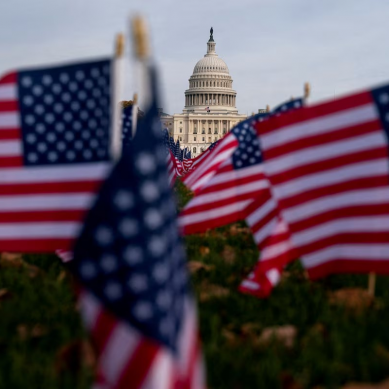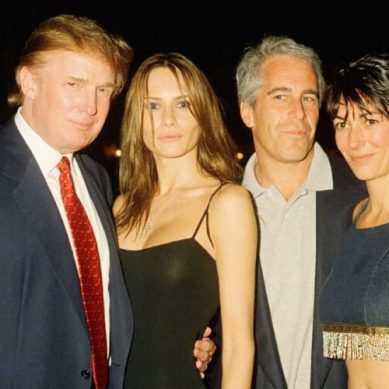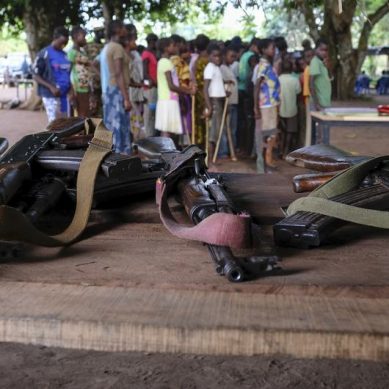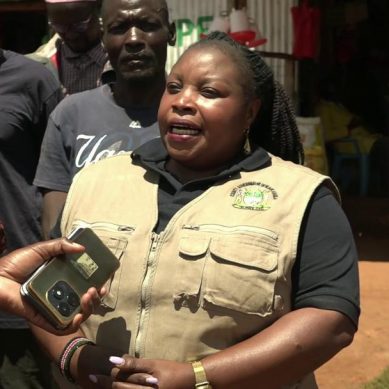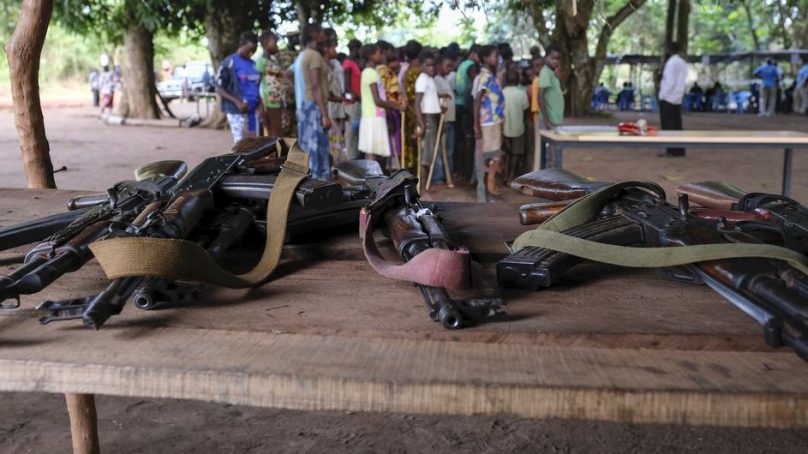
The world faces what senior United Nations officials call a cross-border chain of violence driven by small arms and light weapons.
UN officials tasked with disarmament and law enforcement this week told the Security Council (SC) co-ordinated global action is needed to stop the illicit flows driving conflict, organised crime and displacement from Haiti to the Sahel.
Adedeji Ebo, deputy disarmament chief, said despite recent steps to strengthen arms control frameworks, “more than a billion firearms are in circulation globally,” sustaining conflict, terrorism and criminal networks across multiple regions. According to a UN statement he has it: “The illicit trade and misuse of small arms and light weapons fuels armed violence, terrorism and organised crime”.
“Weapons diverted from national stockpiles – or at any point throughout the supply chain – could end up in the hands of non-state armed groups.”
One definition has small arms and light weapons broadly categorised as weapons intended for individuals in armed or security forces, further classifying them as man-portable weapons made or modified to military specifications for use as lethal instruments of war.
The growing spread of 3D printed so-called “ghost guns” without serial numbers adds to the proliferation of small arms and light weapons. They are, according to Ebo, increasingly found in illicit markets in Western Europe and Latin America.
The human toll is stark, UNSC members heard. In 2024, the UN recorded at least 48,000 conflict-related civilian deaths with small arms responsible for up to 30 per cent of these. He maintains prevention is possible by way of stronger stockpile controls, tracing systems and compliance with arms embargoes.
Roraima Ana Andriani, UN Special Representative to Interpol warned illicit firearms trafficking is now “deeply enmeshed” with cross border organised crime, as networks use weapons to control territory, protect illicit economies and expand influence.
“This is a transnational chain of violence that can only be addressed through transnational co-operation,” she said.
Interpol’s global iARMS database contains over two million records of lost, stolen and trafficked weapons, she said, in support of multinational operations that seized thousands of firearms and dismantled networks tied to terrorism, trafficking and illegal mining.
She warned policing alone is insufficient – “no measure taken in isolation can prevent the flow of such weapons across the globe” – urging the UNSC to incorporate Interpol’s role into sanctions and arms embargo mandates.
Africa is under “acute strain”, warned African Union (AU) High Representative for the continental bloc’s Silencing the Guns initiative, Mohamed Ibn Chambas.
According to him arms proliferation is “a cancer” driving instability across the continent from the Sahel to the Great Lakes Region.
“These weapons are used to unleash horrific violence and suffering in the Darfur region of Sudan,” he is reported as saying in reference to ongoing atrocities in El Fasher. He said controlling small arms is “a prerequisite for sustainable peace” highlighting AU-led efforts to harmonise stockpile management, support amnesty and disarmament initiatives.
Africa Amnesty Month and related programmes have seen destruction of tens of thousands of weapons, he said, as the scale of the problem remains vast. In closing, Ebo warned “weapons produced and transferred today risk fuelling the instability of tomorrow”.
“We must prevent the diversion and illicit manufacture of small arms and light weapons or we will face the consequences of deepening insecurity.”
Meanwhile, in the wake of high level African Union (AU)/United Nations (UN) talks, UN Secretary-General Antonio Guterres urged the world not to turn its back on the continent.
“Co-operation between our organisations has never been stronger – or more necessary,” the UN supremo said at a press briefing alongside AU Commission chair, Mahmoud Ali Youssouf.
“Our world is in turmoil, rocked by deadly conflicts, widening inequalities, climate chaos and runaway technologies. The impacts are felt deeply on the African continent,” Guterres is reported as saying, following the ninth AU/UN conference. Topics on the table at the conference included co-operation frameworks as well as joint challenges in the areas of peace, security, development, human rights and climate action.
The world body and the African bloc, the UN reports, are “working closely” on flagship peace programmes, including the AU “Silence the Guns by 2030” initiative.
Guterres said decisive action was needed in three areas, starting by “simply prioritising Africa”.
Going further he said the UN Pact for the Future, adopted last year, called for Africa to have permanent seats on the Security Council, correcting for “once and all an intolerable injustice faced by the African continent.”
His second point concerned financing for development and innovation. Africa has vast resources he said adding, “Its progress is held back by an outdated and unfair global financial system”.
“The time has come to reform this financial architecture – so it reflects the world of today and better serves the needs of developing countries, particularly in Africa.”
He pointed out “African leadership helped secure the Sevilla Commitment,” an agreement reached by UN member states this year, which includes steps to advance issues such as easing debt burdens and lowering borrowing costs.
Elaborating on the Silence the Guns initiative, Guterres said it is part of investing in peace. “It’s time is now – Africa is home to too many conflicts and too much suffering.”
“The world must not turn its back on Africa, home to nearly one-fifth of humanity,” the UN chief emphasised, warning “the stakes are too high and the potential too great”.
- A Tell Media report
